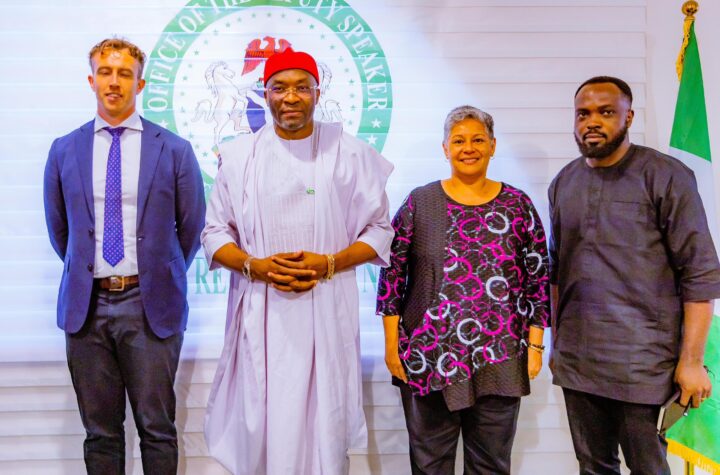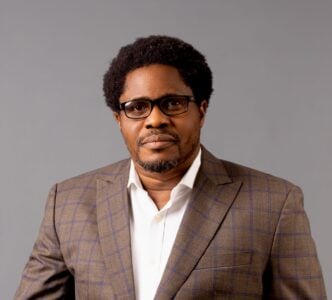L-R: Calum Walker, second secretary, political in Australia; Benjamin Kalu, deputy speaker; Leilani Bin-Juda, Australia high commissioner; and Majeed Bakare, political and economic officer at the Australian embassy
Benjamin Kalu, deputy speaker of the house of representatives, has sought Australia’s support in reforming Nigeria’s mining sector.
Kalu, who chairs the house committee on constitution amendment, made the request on Wednesday at a meeting with a delegation from the Australian embassy in Nigeria led by Leilani Bin-Juda, the high commissioner.
Kalu said Nigeria is rich in natural resources and the mining industry has a potential for growth and development.
He added that Nigeria can draw from Australia’s success in mining by learning best and sustainable practices to ensure responsible extraction of mineral resources.
Advertisement
“Our goal is to create an enabling environment that attracts foreign investment while ensuring that local communities benefit from mining activities,” he said.
“By advancing partnerships with Australian mining companies, we can enhance job creation, boost local economies, and ensure that our natural resources contribute to the overall development of Nigeria.”
The deputy speaker also solicited support for the gender bills amid an ongoing constitutional amendment process.
Advertisement
“The constitution review committee is currently engaged in significant constitutional amendments that seek to address pressing issues within our society,” he said.
“Among these are the gender bills, specifically HB 1349, which addresses the reservation of seats for women in our legislative bodies.
“This initiative is crucial for enhancing women’s representation in governance, which is essential for a balanced and equitable society.”
Bin-Juda said Australia has bilateral ties with Nigeria in areas like mining and is in talks with the ministry of foreign affairs for investment in the sector.
Advertisement
“Our interest here in Nigeria ranges from mining, trade, investment and so on. We are about to launch a project with the minister of mines and steel in a couple of weeks,” Bin-Juda said.
Also speaking with a delegation from the Rwanda embassy, Kalu said both countries can partner to enhance peace, stability and development on the continent.
He said in addition to economic cooperation, Nigeria and Rwanda can forge an inter-parliamentary collaboration.
“By enhancing dialogue between our parliaments, we can ensure that our legislative frameworks align with our shared goals and aspirations,” he said.
Advertisement
Kalu said the ongoing review of Nigeria’s 1999 constitution presents an opportunity to refine gender laws, with Rwanda making “remarkable” strides in that regard.
“Your nation’s exemplary progress in gender representation, with women holding 63.75 percent in the chamber of deputies and 53.8 percent in the senate — the highest in the world — provides a valuable model for us to learn from,” he said.
Advertisement
Christophe Bazivamo, Rwandan ambassador to Nigeria, said both countries can strengthen their legislative collaboration in areas like drafting legislation, using technology in parliamentary activities, and forming a Nigeria-Rwanda parliamentary friendship group.
BACKGROUND
Advertisement
Over the years, the federal government has struggled to regulate the mining sector, where a chunk of the players are artisanal, with many operating illegally.
In August 2024, the house of representatives committee on solid minerals development said Nigeria loses $9 billion annually to illegal mining.
Advertisement
Similarly, Tajudeen Abbas, speaker of the house, said an estimated 80 percent of mining in the north-west is done illegally.









